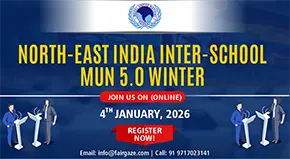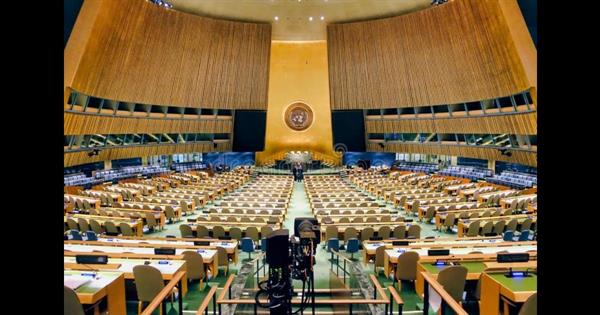
Mistakes to Avoid When Organize aqusing High School MUN Conferences
Organizing high school MUN conferences are a matter of great pride. You are drafting a great organization and who are given a great opportunity to collaborate with various educational institutions.
You will also meet delegates from various parts of India or world who will be participating in these MUN conferences. Because of these wonderful opportunities, you will be able to develop a better understanding of the benefits or drawbacks of organizing variety of conferences.
When you are organizing high school MUN conferences, you may face many hurdles or challenges. Some of the mistakes that we have seen organizers keep making are listed in this article. Here we have complied those lists to ensure that you avoid making them!
So, go through them and organize your MUN conference in a fun manner.
Concern No. 1: Excessively Large Committees
The size of the committees is often cited as a significant obstacle that must be overcome during large conferences. Committees with more than fifty representatives typically give rise to a number of challenges, including the following:
1. Difficulty in Keeping the Decorum: Managing a big number of delegates in a single room, regardless of whether they are college students or high school participants, frequently results in a breakdown in the decorum. This is true whether the participants are in high school or college. Beyond a certain size, it is practically hard to keep order in a space, which is analogous to the situation in educational institutions' classrooms.
2. Fewer Opportunities to Speak: When the number of delegates attending high school MUN conferences increase, the number of available opportunities to speak decreases. Even in a committee with fifteen highly interested participants, the opportunities to speak may be limited to just three times spread out over the course of two hours. This restriction on speaking hinders the quality of involvement, which is particularly upsetting for overseas teams that travel vast distances to participate in the competition.
3. Obstacles to Effective Communication: When there are more than fifty delegates present in an unmoderated caucus or lobbying session, effective communication can be difficult to achieve. This kind of congestion leads to superficial alignment based on the room's geography and makes it difficult for delegates and chairs to have substantive conversations with one another.
What’s the Solution?
The solution to this problem is uncomplicated: just create smaller committees. In spite of the fact that this can result in lower conference revenue, the improved experience for delegates merits making this trade-off.
Concern Number Two: Time-Consuming Conference Schedules
The timetables for many conferences are drawn out to ridiculous lengths in an effort to cram as many sessions and events as possible into a single day. This prolonged schedule results in a number of issues, including the following:
1. Decreased Quality of Debates: Prolonged schedules result in participants who are worn out and disengaged by the end of the day, which leads to poor discussions and debates.
2. The Impact on Student Responsibilities: The schedules of conferences that take up an entire day disrupt students' abilities to fulfil their academic responsibilities and make it more difficult for them to efficiently manage their studies.
What’s the Solution?
The solution to these problems is to plan high school MUN conferences with timetables that are designed to be as similar as possible to those of typical school days. This will prevent participants from becoming overworked. A conference day that begins at nine in the morning and ends at six o'clock in the evening establishes a balance between participants' participation and their well-being.
Concern No. 3: Undefined Standards for Awards
At many conferences, the hazy and open-ended criteria for awarding prizes are a source of annoyance for the delegates:
1. Bias and Inconsistency: Ambiguous criteria might lead to biassed awarding or inconsistent evaluations, sometimes favouring host institutions or associates of the evaluators. This is a problem because it makes it more difficult to compare applicants.
2. The Frustration of Advisors: Because advisors spend a significant amount of time preparing their teams, they need clear instructions to ensure that their students are adequately prepared for the conference.
What’s the Solution?
The solution to the problems of prejudice and frustration is to distribute standardised evaluation papers to all of the chairs in the committee. This would assure both consistency and transparency in the rewards evaluation process.
Concern Number Four: The Ineffectiveness of Opening and Closing Ceremonies
Opening and closing ceremonies frequently have problems that prevent them from being effective:
1. The Length of the Keynote Speaker and Their Relevance: Long keynote speeches delivered by individuals who do not have a full understanding of Model United Nations fail to properly engage the young participants.
2. Excessive Ceremonial Elements: Long and drawn-out ceremonies have the potential to turn off attendees, particularly if acknowledgements and thank-you speeches go on for an inordinate amount of time.
What’s the Solution?
The solution is to change the focus from the status of the speakers to the meaningfulness of the content of what they have to say. In order to sustain attendees' interest, keynote speakers in the high school MUN conferences should stick to the topic at hand and keep their remarks brief.
Related Blogs
-
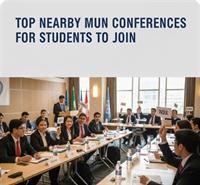
24-Dec-2025 Top Nearby MUN Conferences for Students to Join
-
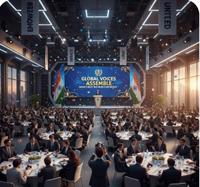
27-Nov-2025 Global Voices Assemble India Next Big MUN Conference
-
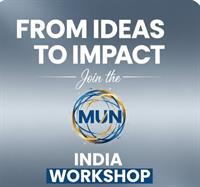
13-Nov-2025 From Ideas to Impact Join the MUN India Workshop
-
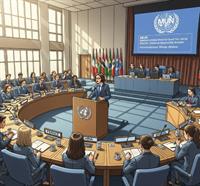
14-Aug-2025 What Is A Conference In MUN?
-
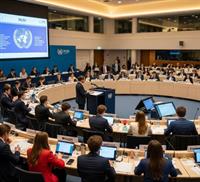
07-Aug-2025 What Does the MUN Do?
-
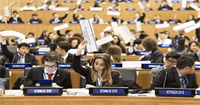
03-Jul-2025 Ways to Research for a Model UN Position Paper
-

28-Mar-2025 What skills do you gain from Model United Nations?
-
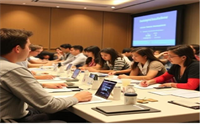
19-Mar-2025 MUN Near Me Upcoming Conferences and How to Register

